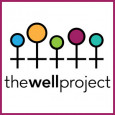This post originally appeared on and can be read in its entirety at The Well Project.
Have you ever wondered what it’s like to be transgender? Living with HIV? In the rural South? Each of these issues alone can be challenging. Together, they are my reality—and it’s crucial for healthcare providers to acknowledge them all when addressing my needs.
Let’s start with language, as it is, to me, a good indicator of how you really feel about me, how much respect you intend to give me, and thus, how much I’m probably going to trust you right off the bat. First of all, “transgendered” is not a word, and is not a word as it is not possible. The added “ed” on the end implies something done with or to you: you can be murdered, you can be debated, but you can’t be transgendered. This is not the result of anyone’s actions or of any past traumas. You’re born transgender; it just may take you a while to figure that out.
Secondly, I personally don’t like the terms “transgender women” or “transgender men” and will for the duration of this article use the terms “women/woman of transgender experience” “men/man of transgender experience” and “people of transgender experience” and this is why: because first and foremost, above all, I am a woman. By calling me a transgender woman, you automatically set me apart from other women, proclaiming me as different, labeling me as “other;” you are saying that I don’t fully belong in the female demographic, like some kind of third gender. You are adding a medical diagnosis to explain my gender, as though my gender needs explaining. I may have a different life experience than cisgender women, but I am not to be set apart. I AM A WOMAN!!
Language is crucial in an industry as deliberate as healthcare, and it’s important that you understand this, because people of transgender experience living with HIV in the rural South face many sociocultural challenges and structural barriers to care that increase our risk of contracting HIV and discourage us from seeking testing and continued care, from the very start. Past negative experiences with the healthcare industry--such as intentional dead-naming (using one’s birth name after a preferred name has been chosen and used), blatant or microagressive misgendering, invasive/inappropriate questions about being transgender, or having to educate providers about transgender healthcare issues--have caused many in the transgender community to forego healthcare altogether. It’s no wonder that, at nearly three times the national average for new HIV diagnoses, nearly half of newly diagnosed people of trans experience live in the South,18% of whom had an AIDS diagnosis (HIV.gov). We have lower rates of viral suppression and higher rates of HIV-related mortality, not to mention higher rates of poverty, unstable housing, food insecurity, unemployment, incarceration, mental health issues, substance abuse, discrimination, violence, stigma, and other traumas. Continue reading...
The Well Project is a non-profit organization whose mission is to change the course of the HIV/AIDS pandemic through a unique and comprehensive focus on women and girls. Visit their website, https://www.thewellproject.org/, to access fact sheets (English and Spanish), blogs, and advocacy tools, and to join a global community of women living with HIV.








Comments
Comments